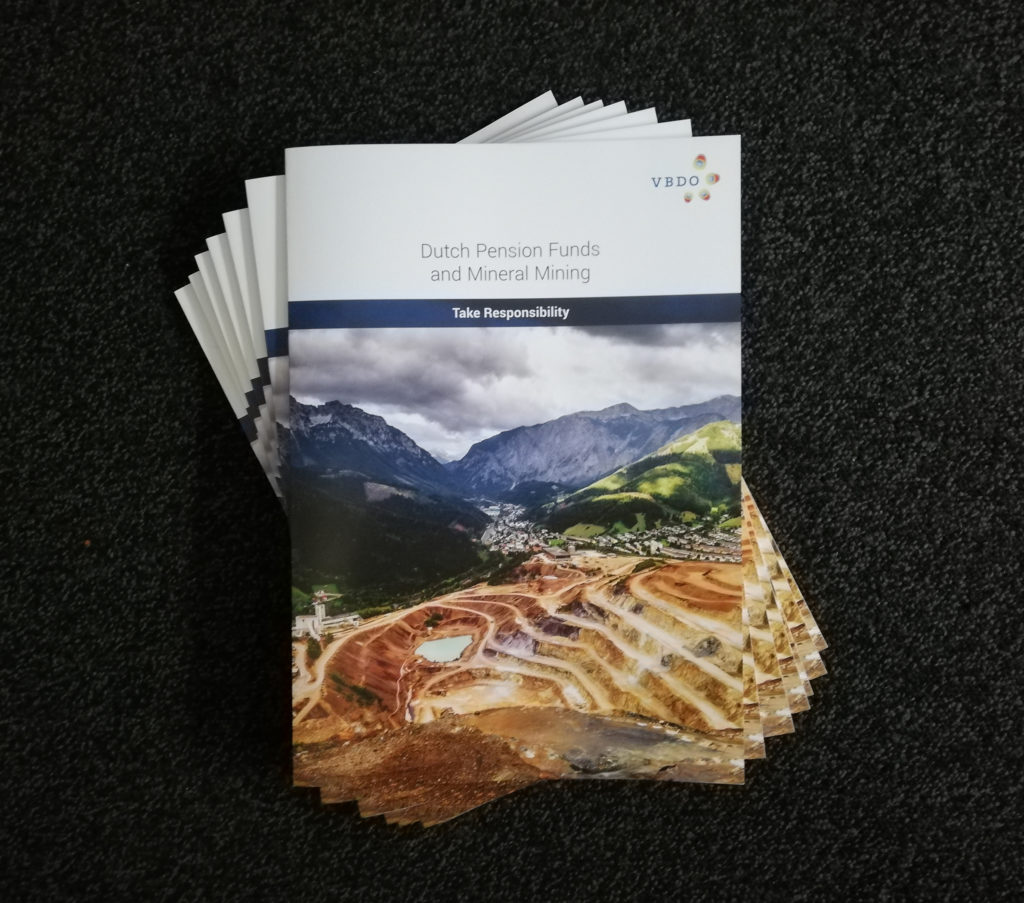Almost all Dutch pension funds invest in mining, a sector that is notorious for its large, negative impact on people and the environment. To what extent do Dutch pension funds take these risks into account in their responsible investment policy? Hardly, according to a study by the Association of Investors for Sustainable Development (VBDO). Only 23% of Dutch pension funds include the risks associated with mining in their responsible investment policy.
The majority of Dutch pension funds identify multiple risks
The report shows that the majority of Dutch pension funds with regard to the mining sector identify multiple risks, such as emissions, safety, health and reputation. Almost half of the pension funds indicate that the extraction of any mineral is associated with risks.
“The mining sector is a major driver of climate change,” says Angelique Laskewitz, director of the VBDO. “The sector will have to apply more sustainable methods to be able to meet the agreements in the 2015 Paris agreement.”
Responsible investment: policy and implementation lagging behind
It is the first time that this research has been carried out, into the extent to which Dutch pension funds take account of the risks associated with the mining sector in their responsible investment policy. “Our research shows that responsible investment in mining is indeed on the agenda of pension funds in the Netherlands, but the formulation of policy and implementation still offer many challenges and uncertainties for this sector,” says Laskewitz. “With this research we want to provide the necessary transparency and help the pension funds to overcome these challenges.”
Low ESG integration
The research shows that just over half of pension funds in the investment decision-making process make use of structural integration of information on environmental, social and corporate governance (ESG integration) factors.
Inadequate dialogue between pension funds and the mining sector
According to the pension funds surveyed, engagement is the best way for minimalizing issues in the mining sector. More than 90% of the pension funds agree that starting a dialogue with mining cooperatives and organizations is an effective approach within the supply chain. However, the reality is that less than half of the pension funds actually enter into dialogue with mining companies on ESG issues. Less than a third start the conversation with organizations that deal with raw materials.
Seven recommendations for investors
The report presents seven recommendations for investors in the mining sector. Laskewitz: “We recommend that pension funds go from a reactive to a proactive attitude. Now, for example, pension funds are mainly responding to controversies, instead of starting the dialogue at an earlier moment. In addition, more cooperation is important. Not only for sharing knowledge among pension funds themselves, but also with experts and local NGOs. ”
The other recommendations from the report are; the definition of a sector-specific policy, the use of specific standards for Mining in the identification of problems and risks, structurally including the most important risks in ESG integration, looking beyond the usual suspicious problems and risks as well as a focus on the right governance questions.
Call to investors
Coenraad Krijger, director of IUCN NL, calls on pension funds to take their responsibility and proactively contribute to the necessary change within the mining sector. “Ensuring the protection of ecosystem services is of vital importance. A mine only has a limited lifespan, but ecosystem services such as soil fertility and drinking water are needed forever.”
Minerals and raw materials are everywhere, in everything we make. The raw materials that we extract from the earth are and remain an important, driving force behind the global economy. However, the mining sector has a bad reputation due to serious violations of fundamental human rights, health and safety issues, environmental damage and other negative consequences. At the beginning of this year, major disasters still occurred at mines in Brazil and Indonesia, killing dozens of people and hundreds of people missing.

